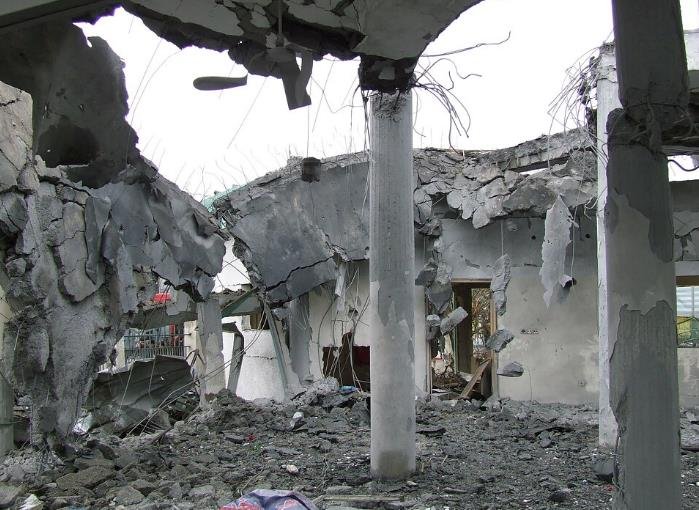A group of 26 European Union countries, excluding Hungary, issued a joint statement on Monday, warning Israel against launching a military operation in Rafah, the southernmost city of Gaza, where more than 1.5 million Palestinians live in dire conditions. The statement called for an “immediate humanitarian pause that would lead to a lasting ceasefire, the unconditional release of all hostages and the provision of humanitarian assistance.”
The statement was released after a meeting of EU foreign ministers in Brussels, where they discussed the ongoing crisis in Gaza, which has been under Israeli blockade and bombardment since October 2023, when Hamas militants killed hundreds of Israelis in a series of attacks. The statement said that an attack on Rafah would be “absolutely catastrophic” and “unconscionable” and that it would “worsen an already catastrophic humanitarian situation and prevent the urgently needed provision of basic services and humanitarian assistance.”

The statement also expressed support for the efforts of Egypt and other countries to mediate a ceasefire and to end the bloodshed in Gaza, where more than 4,000 people have been killed, mostly civilians, according to health officials. The statement also urged Israel to “exercise restraint” and to “respect the sanctity” of the holy sites in Jerusalem, where tensions have been high over the access and status of the Al-Aqsa Mosque compound.
Israel prepares for a ground invasion of Rafah, the last stronghold of Hamas
Israel has been preparing for a ground invasion of Rafah, which it considers the last stronghold of Hamas, the Islamist group that controls Gaza. Israel says that Rafah is a hub of Hamas’s military activities, where it hides its fighters, command centers and tunnels. Israel says that it has no choice but to launch an offensive in Rafah, as Hamas has refused to release the 130 hostages that it has been holding since the October 7 massacres, and has continued to fire rockets and mortars at Israeli towns and cities.
Israel says that it is taking “extraordinary measures” to avoid civilian casualties, such as dropping leaflets, making phone calls and sending text messages, urging the residents of Rafah to evacuate their homes and move to safer areas. Israel says that it is also coordinating with the United Nations and other humanitarian agencies to facilitate the delivery of aid and the evacuation of the wounded. Israel says that it is acting in self-defense and that it has the right to protect its citizens from Hamas’s aggression.
However, many human rights groups and international observers have questioned Israel’s claims and methods, and have accused it of violating international humanitarian law and human rights. They say that Israel is using disproportionate and indiscriminate force, and that it is targeting civilian infrastructure, such as schools, hospitals, mosques and media offices. They say that Israel is also imposing collective punishment on the entire population of Gaza, and that it is preventing the access of humanitarian aid and medical supplies. They say that Israel is also violating the sovereignty and territorial integrity of Egypt, as Rafah is located on the border between Gaza and Egypt.
Hungary is the only EU country that does not join the statement, as it supports Israel’s actions
Hungary is the only EU country that did not join the statement, as it supports Israel’s actions and views Hamas as a terrorist organization. Hungary is a close ally of the Israeli government, and has often defended its policies and interests in the international arena. Hungary’s Foreign Minister Peter Szijjarto said that Hungary did not agree with the statement, as it did not condemn Hamas’s attacks on Israel, and did not recognize Israel’s right to self-defense.
Szijjarto said that Hungary was “proud” to stand by Israel, and that it was “disappointed” by the EU’s stance, which he said was “biased” and “unbalanced”. He said that Hungary was “not afraid” to express its opinion, and that it would not “bow” to the pressure of the majority. He said that Hungary was “convinced” that Israel was “fighting for a just cause”, and that it was “the only democracy” in the Middle East.
